Turn any article into a podcast. Upgrade now to start listening.
Premium Members can share articles with friends & family to bypass the paywall.
Happy Wednesday! On this day in 1787, the Founding Fathers gathered to sign a document clearly delineating, among other things, the duties and limitations of the office of the president, as long as they don’t inconvenience him. And he’s in the mood. Unless Congress is too busy recording a podcast or something, then the president can do some of that stuff too. Happy Constitution Day!
Quick Hits: Today’s Top Stories
- Utah County Attorney Jeff Gray charged Tyler Robinson on Tuesday with aggravated murder in the fatal shooting of right-wing activist Charlie Kirk, releasing text messages that showed the 22-year-old suspect confessed to his transgender roommate—with whom he was romantically involved—and that he had planned the shooting over the week before. When his roommate asked why he killed Kirk, Robinson texted “I had enough of his hatred” and that “some hate can’t be negotiated out,” according to the evidence released Tuesday. He also wrote that the messages engraved on his shell casings were “mostly a big meme, if I see ‘notices bulge uwu’ on fox new [sic] I might have a stroke.” Gray announced prosecutors will seek the death penalty against Robinson, who appeared virtually in court Tuesday and remains jailed without bail.
- A New York state judge on Tuesday dismissed terrorism charges against Luigi Mangione, the alleged gunman in the December 2024 killing of UnitedHealthcare CEO Brian Thompson in midtown Manhattan—though he faces nine other state charges, including second-degree murder, in addition to charges in Pennsylvania and in federal court. Manhattan District Attorney Alvin Bragg had argued that Mangione’s alleged actions met the legal threshold for terrorism—planned murder intended to “intimidate and coerce a civilian population”—which New York State Supreme Court Justice Justice Gregory Carro described in his decision as “legally insufficient,” because, in part, “there was no evidence presented of such a goal.”
- FBI Director Kash Patel testified before the Senate Judiciary Committee on Tuesday, where Senate Democrats pushed him for what they said was allowing the president’s personal whims to influence his leadership. When Democratic Sen. Adam Schiff of California grilled Patel on his decision to move Ghislaine Maxwell—the convicted accomplice of deceased sex offender Jeffrey Epstein—to a lower-security prison, suggesting that President Donald Trump influenced the move, Patel replied that he was “combating the weaponization of intelligence by the likes of you.” He also said that the Bureau of Prisons decided to move Maxwell. Meanwhile, Democratic Sen. Cory Booker of New Jersey panned Patel for bringing what he said was “generational destruction” to the FBI, igniting a shouting match in which Patel called Booker an “embarrassment.” Later, Patel addressed his social media post stating that authorities arrested “the subject” connected to Charlie Kirk’s assassination—a person who was later released—saying that he could “have been more careful in my verbiage” but didn’t “see it as a mistake.”
- On Tuesday, Australian Communications Minister Anika Wells and eSafety Commissioner Julie Inman Grant announced new guidance for social media companies in light of a recently passed statute barring Australians under 16 from holding accounts on the platforms. They said that while age-verification measures would be “unreasonable,” companies must install a “multilayered waterfall approach” to ensure young users’ accounts are removed, but also include “accessible review mechanisms” for accounts wrongly suspended. Companies could be fined up to 50 million Australian dollars ($34 million U.S.) if they don’t comply with the ban, which goes into effect on December 10.
- Trump sued the New York Times and four news reporters employed at the outlet for defamation on Tuesday, seeking $15 billion in damages. In a social media post, Trump said the news organization “has engaged in decades long method of lying about your Favorite President (ME!), my family, business, the America First Movement, MAGA, and our Nation as a whole.” A spokesperson for the Times said the president’s lawsuit has “no merit,” and described it as “an attempt to stifle and discourage independent reporting.”
- The Georgia Supreme Court, in a 4-3 decision on Tuesday, declined to hear an appeal to a December 2024 court ruling that disqualified Fulton County District Attorney Fani Willis from prosecuting a criminal racketeering case against Trump and 18 other defendants. The Prosecuting Attorneys’ Council of Georgia, a state government office, will now consider whether to appoint the case to another prosecutor or to drop it entirely. Willis indicted Trump in August 2023 for his role in challenging the 2020 presidential election results in Georgia. But a state appeals court later ruled that, because Willis had initially appointed an assistant district attorney with whom she had a previous romantic relationship as a lead prosecutor on the case, neither she nor anyone employed in her office could be involved in the case.
Tick Tock

Congress hasn’t been known for across-the-aisle dealmaking in recent years. But in April 2024, a major piece of legislation passed the House and Senate with widespread support: the Protecting Americans from Foreign Adversary Controlled Applications Act (PAFACA). The law banned the popular social media app TikTok from the U.S. marketplace unless it was sold by its Chinese parent company, ByteDance. Lawmakers cited the risk of China’s government having access to Americans’ data and influence over one of the U.S.’s most popular social media platforms.
The bill passed despite outside opposition from then-former President Donald Trump, with Republicans politely ignoring his objections. When President Joe Biden signed it into law, politicians from both parties applauded.
When TikTok challenged the potential ban in an emergency appeal to the Supreme Court in December 2024, Republicans like Senate Minority Leader Mitch McConnell decried the move as a naked stalling tactic. “This court should no more countenance it coming from foreign adversaries than it does from hardened criminals,” he wrote in an amicus brief.
The Supreme Court rejected TikTok’s appeal on January 15.With the statutory deadline of for TikTok’s sale or ban just four days away, it seemed nearly certain that the short-form video app would be forced to quickly change its ownership or cease its availability in the U.S. But in eight months since, two U.S. presidents have failed to enforce the law, TikTok continues operating in the U.S., and Congress has yet to confront the White House over its refusal to carry out the law it passed with wide margins.
With the ban coming into effect on January 19, the last day of his tenure, Biden punted enforcement to the incoming Trump administration. Trump then issued a series of executive orders delaying the enforcement of the ban, declaring that the executive branch would not act to ban TikTok until it could “negotiate a resolution to avoid an abrupt shutdown of the TikTok platform while addressing national security concerns.” The first order was issued on Inauguration Day, which TikTok CEO Shou Chew attended, seated next to intelligence chief Tulsi Gabbard. The company also sponsored an inauguration-eve party for pro-Trump influencers.
PAFACA allows for a 90-day extension of the enforcement deadline, but that provision was designed to allow an ongoing sales transaction to be completed, not to repeatedly delay action through executive order. So far, the White House has delayed enforcement for 226 days—and though that latest extension was supposed to expire Tuesday, Trump signed yet another executive order authorizing an enforcement delay—this time to December 16.
It’s an understatement to say this stretches the word of the law, but it looks like the administration’s legal gambit has paid off.
On Monday, Treasury Secretary Scott Bessent told reporters that China and the U.S. had agreed to a framework for a deal “between two private parties” to transition the social media company to U.S. ownership.
Chinese officials said the deal would include “licensing the algorithm and other intellectual property rights,” but the Wall Street Journal reported that TikTok engineers would use technology licensed from ByteDance to re-create a set of content-recommending algorithms for a U.S. app, rather than import the algorithm wholesale.
CNBC reported on Tuesday that the deal is expected to close within the next 45 days, and will involve both existing ByteDance investors and new ones. White House officials also said the agreement would reduce ByteDance’s ownership stake to less than 20 percent to comply with the law, and the Wall Street Journal reported that U.S. technology giant Oracle and its owner, Larry Ellison, would be joined by venture capital firms Andreessen Horowitz and Silver Lake in the 80 percent stake. Existing ByteDance investor Jeff Yass—a major Republican donor—is also reportedly involved. Oracle already works extensively with TikTok, storing all U.S. user data on its own servers as part of Project Texas, an initiative aimed at alleviating concerns that TikTok could grant China access to Americans’ personal data (although questions remain about the project’s effectiveness).
The source of the app’s wild success, TikTok’s video recommendation algorithm, is the industry benchmark—U.S. TikTok users average nearly twice as much time per day on the app compared to users of Snapchat, Facebook, and Instagram. But this algorithm is one of the main reasons Congress was alarmed by TikTok’s success in the first place: Parent company ByteDance uses it across multiple products, including the Chinese equivalent of TikTok, Douyin. ByteDance claims to have no relationship with the Chinese government, but it’s bound by Chinese law to collaborate with the country’s intelligence agencies and works with Beijing on military technology projects. The Chinese Communist Party also owns a “golden share” in ByteDance, entitling it to a seat on the board of the company’s Chinese subsidiary.
If TikTok retained access to the existing algorithm under the new deal, Chinese officials could influence which user-generated content is more likely to be seen—and which isn’t. And this concern about a foreign adversary wielding influence over Americans isn’t theoretical. In 2024, as a U.S. ban loomed, TikTok pushed messages to its roughly 150 million U.S. users urging them to contact their representatives to oppose the ban—a move that immediately backfired.
“This is exactly the reason why so many of our colleagues voted for the bill,” Rep. Raja Krishnamoorthi of Illinois, the ranking Democrat on the House Select Committee on competition with the Chinese Communist Party, said at the time. “They don’t want a foreign adversary controlling social media apps using geolocation to target minor children to call members of Congress or interfere in our elections.”
But less overt strategies might be easier to pull off. Videos supporting Taiwan, or highlighting human rights abuses in western China, could be suppressed by a simple algorithm tweak, said Ryan Fedasiuk, a fellow at the American Enterprise Institute, in an interview with TMD. “If a U.S.-based company is just operating the algorithm as it has been developed by ByteDance, then all of the long-standing concerns American lawmakers have had about TikTok basically won’t go addressed.” Last year, TikTok removed a video of a Uyghur student discussing Chinese abuses against her people, claiming it violated community guidelines.
Leaving the algorithm in the hands of a Chinese company is also likely illegal. The text of the 2024 legislation states that TikTok will be able to operate in the U.S. only if “the President determines” that a new ownership structure severs any operational relationship between U.S. owners of Tiktok and entities “controlled by a foreign adversary, including any cooperation with respect to the operation of a content recommendation algorithm or an agreement with respect to data sharing.”
Adopting the deal laid out this week would be a plain “contravention of the text of the law,” Alan Rozenshtein, a professor at the University of Minnesota Law School, told TMD. It’s possible that federal lawyers will rely on the “president determines clause” to argue that Congress has delegated the entire authority to determine what sort of deal satisfies the law to the president—a somewhat far-fetched assertion, Rozenshtein said. But Trump would be on firmer ground if the rebuilt algorithm is a truly distinct entity from ByteDance’s proprietary software, he noted.
In letters sent earlier this year, Attorney General Pam Bondi promised to protect operators of app stores and cloud hosting services from legal penalties for providing U.S. services to TikTok. (Apple, Google, and Oracle did not respond to TMD’s requests for comment.) Bondi wrote that the U.S. government was “irrevocably relinquishing” any claims of liability on the companies’ part for hosting TikTok in violation of the law. Bondi also argued that the law was never intended to infringe upon the president’s foreign affairs powers—which Rozenshtein said is just a “way of saying the law is unconstitutional because the President doesn’t like it.”
Congress has done nothing to push back on Trump’s decision, which could include holding hearings or withholding funding for executive branch priorities. Most congressional Republicans have yet to weigh in on the new deal, but many oppose China controlling the algorithm. In a statement to TMD, a spokesperson for the House Select Committee on the Chinese Communist Party, chaired by Republican Rep. John Moolenaar of Michigan, said it was closely following the matter, and that “Any agreement must comply with the historic bipartisan law passed last year to protect the American people, including the complete divestment of ByteDance control and a fully decoupled algorithm.”
And if the White House is to be believed, it agrees.
Commerce Secretary Howard Lutnick told CNBC last week that “the president likes TikTok” but that an algorithm controlled by Chinese actors is a problem.
“The president knows, if we’re going to have TikTok here, that’s got to go,” he said.
Today’s Must-Read
President Donald Trump’s drug war against alleged traffickers from Venezuela became a shooting war on September 2 when a U.S. military drone strike killed 11 Venezuelans aboard a small speedboat in the Caribbean Sea. The Trump administration claimed the 11 dead Venezuelans were members of the gang Tren de Aragua who were trafficking drugs. Then on Monday of this week, Trump announced a second U.S. airstrike had killed three Venezuelans who were allegedly trafficking drugs. And on Tuesday, Trump said the U.S. had destroyed a third boat but provided no details about when or how many people may have been killed. … Even if all of the Trump administration’s claims are true—and there are good reasons to be skeptical—there are strong arguments that there is no legal or moral justification for opening fire rather than stopping the boats, arresting those aboard, and confiscating any drugs that were found.
Toeing the Company Line
Fighting Words
Pam Bondi knows what time it is.
The Next Generation of Woke | Interview: Claire Lehmann
‘Australia is sort of the Texas of the British Empire.’
Worth Your Time
Robert Redford—one of America’s most charming, celebrated, and handsome leading men—died Tuesday at 89 years old. TMD recommends revisiting Butch Cassidy and the Sundance Kid, The Sting, and Barefoot in the Park, after reading Brook Barnes’ obituary in the New York Times: “With a distaste for Hollywood’s dumb-it-down approach to moviemaking, Mr. Redford typically demanded that his films carry cultural weight, in many cases making serious topics like grief and political corruption resonate with audiences, in no small part because of his immense star power. … Mr. Redford was one of Hollywood’s preferred leads for decades, whether in comedies, dramas or thrillers; studios often sold him as a sex symbol. His body of work as a romantic leading man owed a great deal to the commanding actresses who were paired with him — Jane Fonda in ‘Barefoot in the Park’ (1967), Barbra Streisand in ‘The Way We Were’ (1973), Meryl Streep in ‘Out of Africa’ (1985). ‘Redford has never been so radiantly glamorous,’ the critic Pauline Kael wrote in The New Yorker, ‘as when we saw him through Barbra Streisand’s infatuated eyes.’”
Presented Without Comment
The Guardian: Four Arrested After Images of Trump and Epstein Projected On to Windsor Castle Ahead of President’s Visit
Also Presented Without Comment
Washington Post: Donna Brazile: Eleanor Holmes Norton Should Not Run for Reelection
I’ve known my dear friend Eleanor for 44 years, since I came to Washington after graduating from college and worked with her and other civil rights leaders to win enactment of a federal holiday honoring the Rev. Martin Luther King Jr. She’s been my role model and mentor ever since. She has been like a second mother to me.
But Norton, a Democrat, is now 88 — the oldest current House member. She is no longer the dynamo she once was, at a time when D.C. needs the kind of energetic representation in Congress she provided for decades. It’s in her best interest, and the interest of D.C., for her to serve her current term but then end her extraordinary service in Congress and not seek reelection next year.
Also Also Presented Without Comment
BBC: Chinese Teens To Pay $300,000 for Urinating in Soup
Let Us Know
Have any thoughts or questions about today’s newsletter? Drop us a note in the comments!
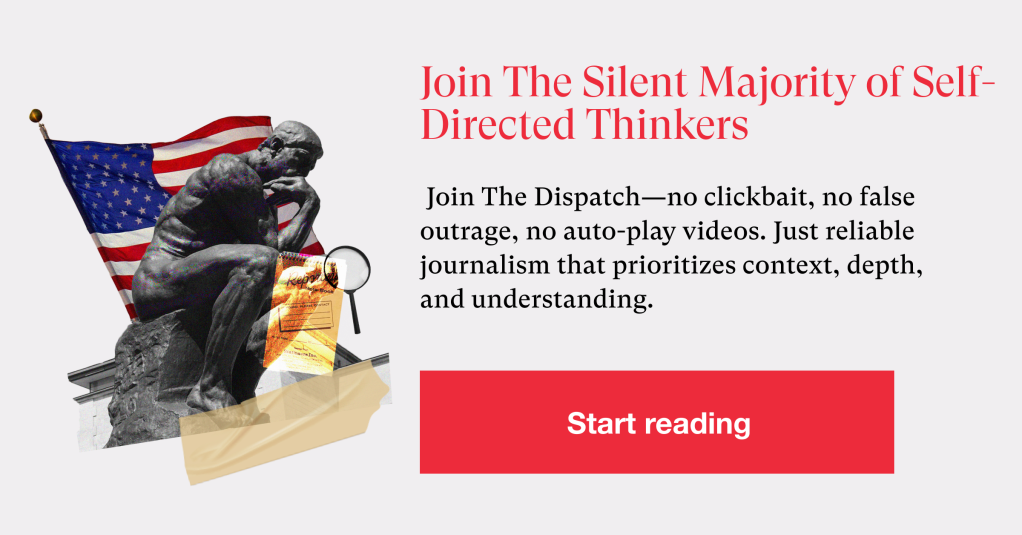
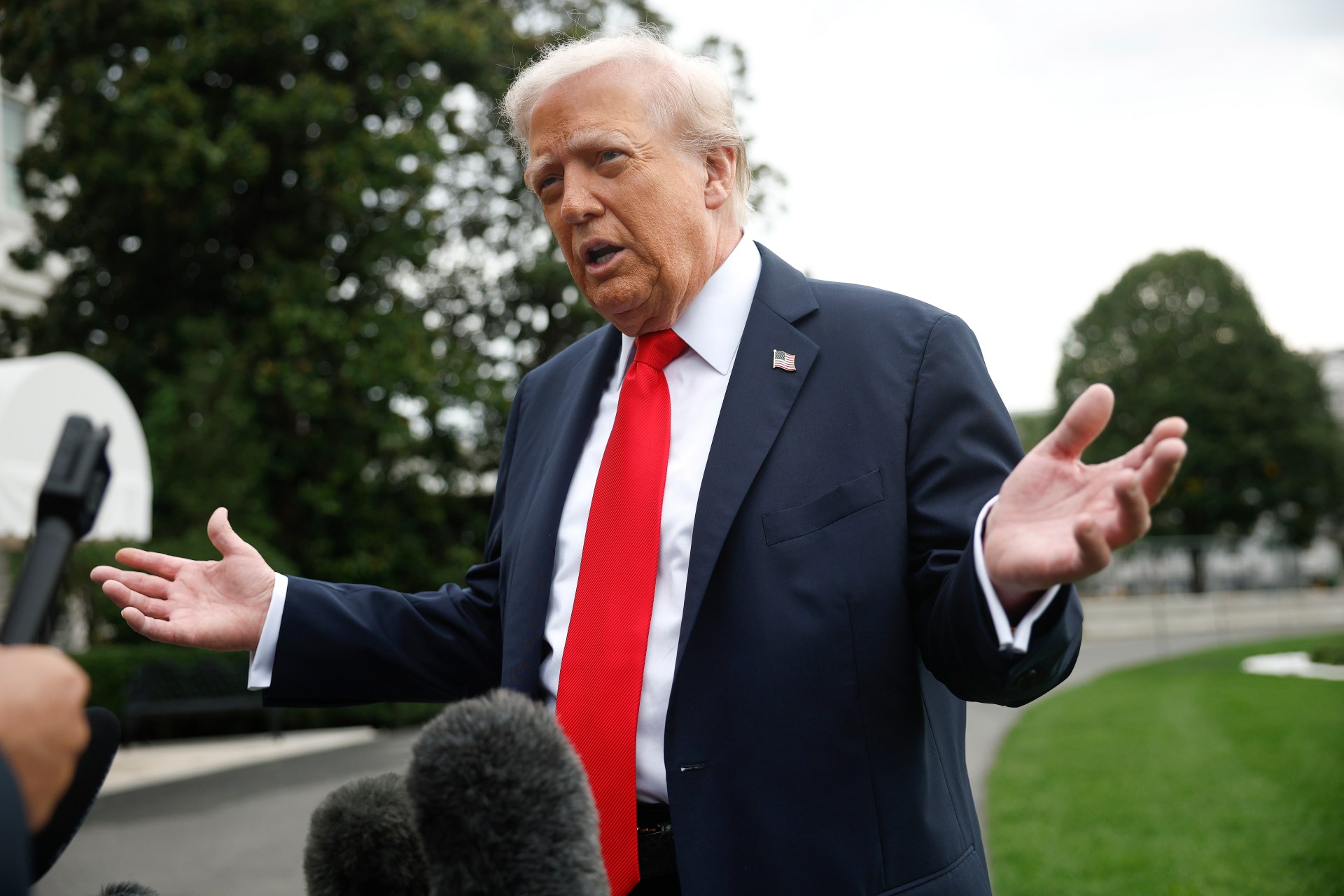

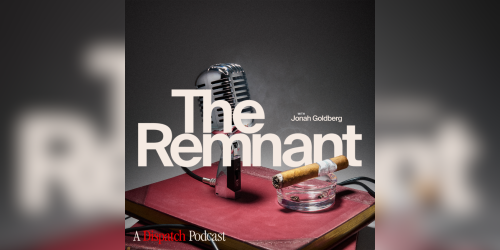




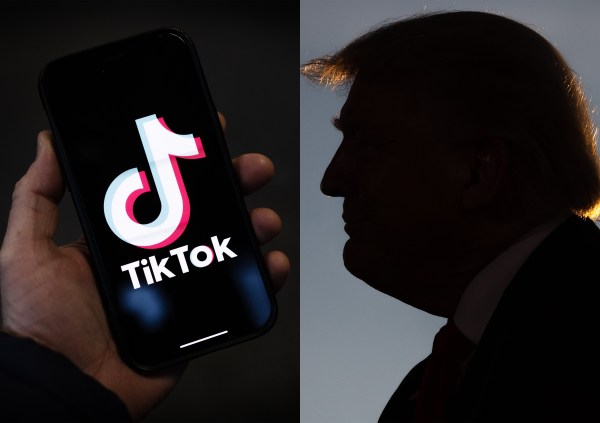
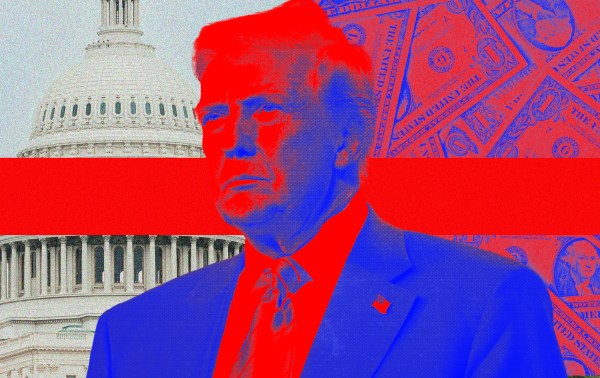

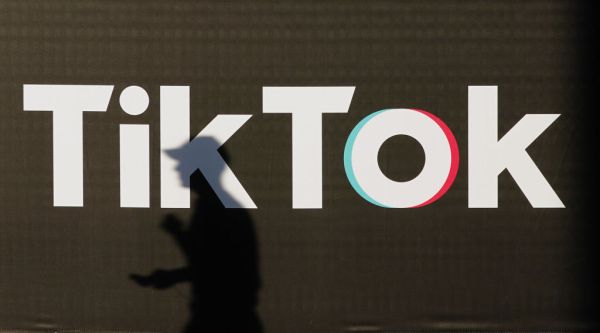

Please note that we at The Dispatch hold ourselves, our work, and our commenters to a higher standard than other places on the internet. We welcome comments that foster genuine debate or discussion—including comments critical of us or our work—but responses that include ad hominem attacks on fellow Dispatch members or are intended to stoke fear and anger may be moderated.
With your membership, you only have the ability to comment on The Morning Dispatch articles. Consider upgrading to join the conversation everywhere.